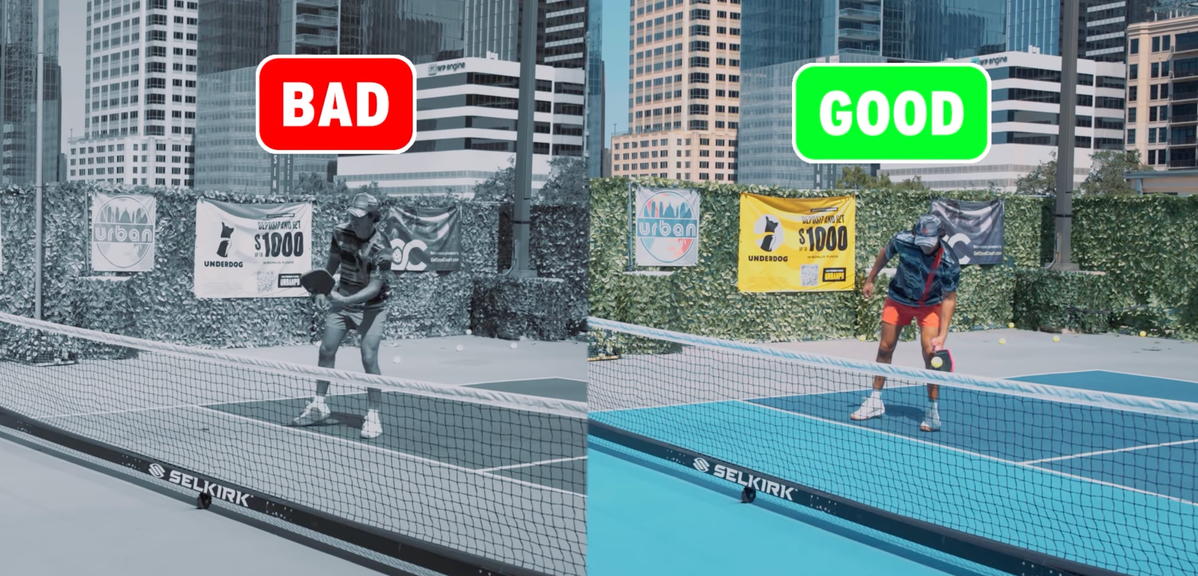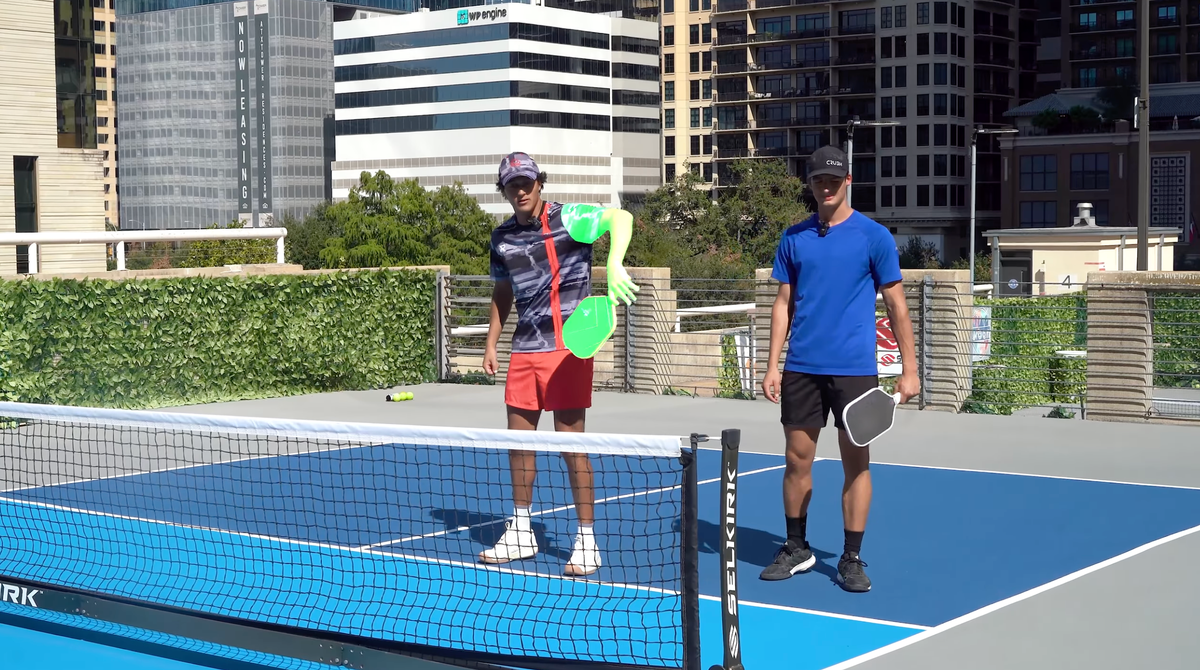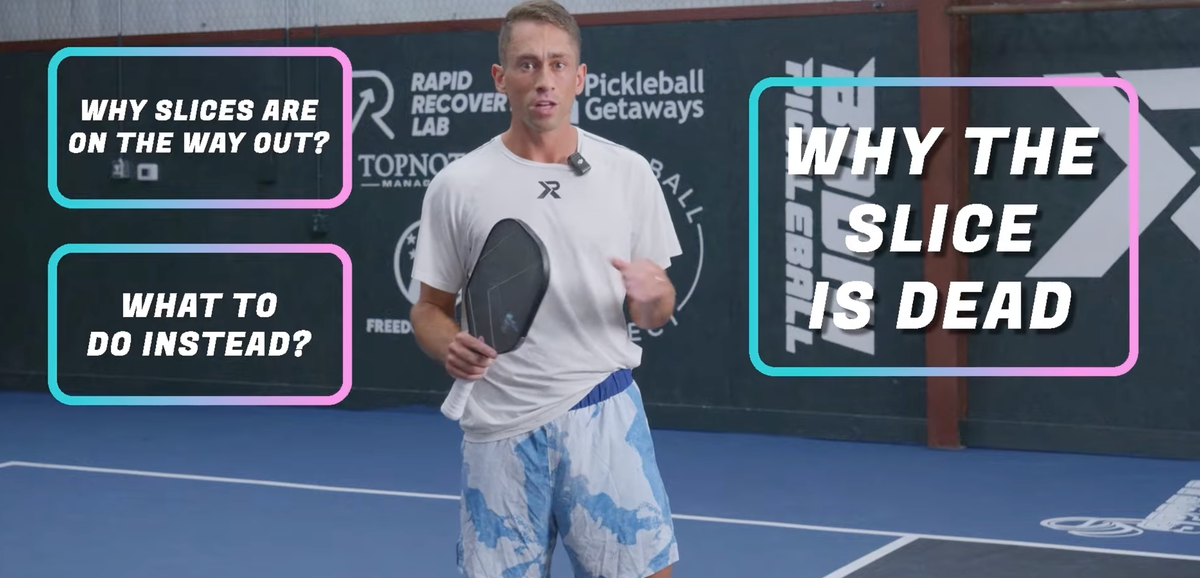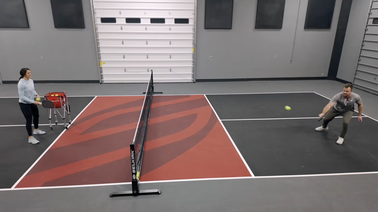
Video: 3 Pro Strategies to Stop Losing Pickleball Hands Battles
Next time you're in a firefights, you won't just be reacting. You'll be thinking. You'll be positioning. You'll be ready.
Whether you've played pickleball for a few weeks or a few years, you've blindly swung your way through more than a few hands battles.
You know, that moment where the ball comes at you faster than your brain can process, and suddenly you're wondering why you can't seem to hold your paddle correctly or make solid contact with the ball.
Love pickleball? Then you'll love our free newsletter. We send the latest news, tips, and highlights for free each week.
Jack Munro, a pro player and content creator, just dropped a breakdown that might change how you approach these fast kitchen exchanges. In it, he reveals the exact mechanics he uses to flip the script on speed-ups and turn defensive situations into counter-punching opportunities.
1. Step Off the Line (And Give Yourself Time to Think)
The first secret Munro shares is simple but game-changing: step off the kitchen line.
Think about it:
- When you're glued to the line, you've got maybe a split second to react.
- Your brain doesn't have time to process what's happening.
- You're operating on pure instinct, which usually means closing your eyes and hoping you make contact.
By taking a step back, you suddenly have three-quarters of a second to react. That might not sound like much, but it's the difference between panic and precision.
"It gives your mind much more time to process what ball is going in versus what ball is going out," Munro says.
This is crucial because it means you can actually let balls go that are sailing long instead of swinging at everything. You know what that means? Fewer unforced errors. More control. Better positioning for your next shot.
2. The Chicken Wing Isn't Always Your Enemy
This one's controversial, and Munro knows it. Most coaches will tell you to avoid getting chicken-winged at all costs. But Munro argues that's incomplete advice.
When the ball is jammed to your side, you can't generate power or torque. You're stuck. But when you hit a chicken wing out in front of your body, you can use your arm, wrist, and body to snap through it. Suddenly, it's a strong shot.
The lesson here is about positioning and timing. It's not about avoiding the chicken wing position entirely. It's about controlling where that position happens. If you can get the ball out in front, you've turned a weakness into a strength.

3. Slide Instead of Jump
The third tip is where footwork becomes your secret weapon.
Munro notices that amateurs jump backwards when a speed up comes at them. Both feet off the ground. Vulnerable. Uncontrolled.
Pros like Collin Johns have perfected something different. They slide on the balls of their feet, staying connected to the court.
"While jumping does generate force, you lose a lot of control and you're vulnerable to off-pace attacks," Munro explains.
"But when you're always on the ball of your feet touching the ground and sliding, you're going to have much more control as well as equally the same amount of power."
Here's another bonus: sliding also confuses your opponent.
They expect you to be in one spot, but you're not. You've moved. And by moving, you've turned your weak points into strong points. That dominant shoulder that usually gets you jammed? Slide into it, and suddenly the ball is in front of your body instead of jamming you up.
Sliding also helps you get out of the way for balls that are going out. If your opponent is expecting your center mass to be in one place and you slide out of the way early, the ball goes out instead of hitting you. You win the point without even hitting it.

The Bigger Picture
Hands battles aren't just about raw speed or reflexes. They're about positioning, anticipation, and footwork. They're about understanding the geometry of the court and your body's relationship to it.
Understanding these mechanics is one thing. Drilling them until they become muscle memory is another. But now you know what to work on.
- You know why stepping off the line gives you more time.
- You know the difference between a bad chicken wing and a good one.
- You know that sliding beats jumping.
Next time you're in a hands battle and that speed-up comes at you, you'll have options. You won't just be reacting. You'll be thinking. You'll be positioning. You'll be ready.
And that's when things change.

Love Pickleball? Join 100k+ readers for free weekly tips, news & gear deals.
Subscribe to The DinkGet 15% off pickleball gear at Midwest Racquet Sports








